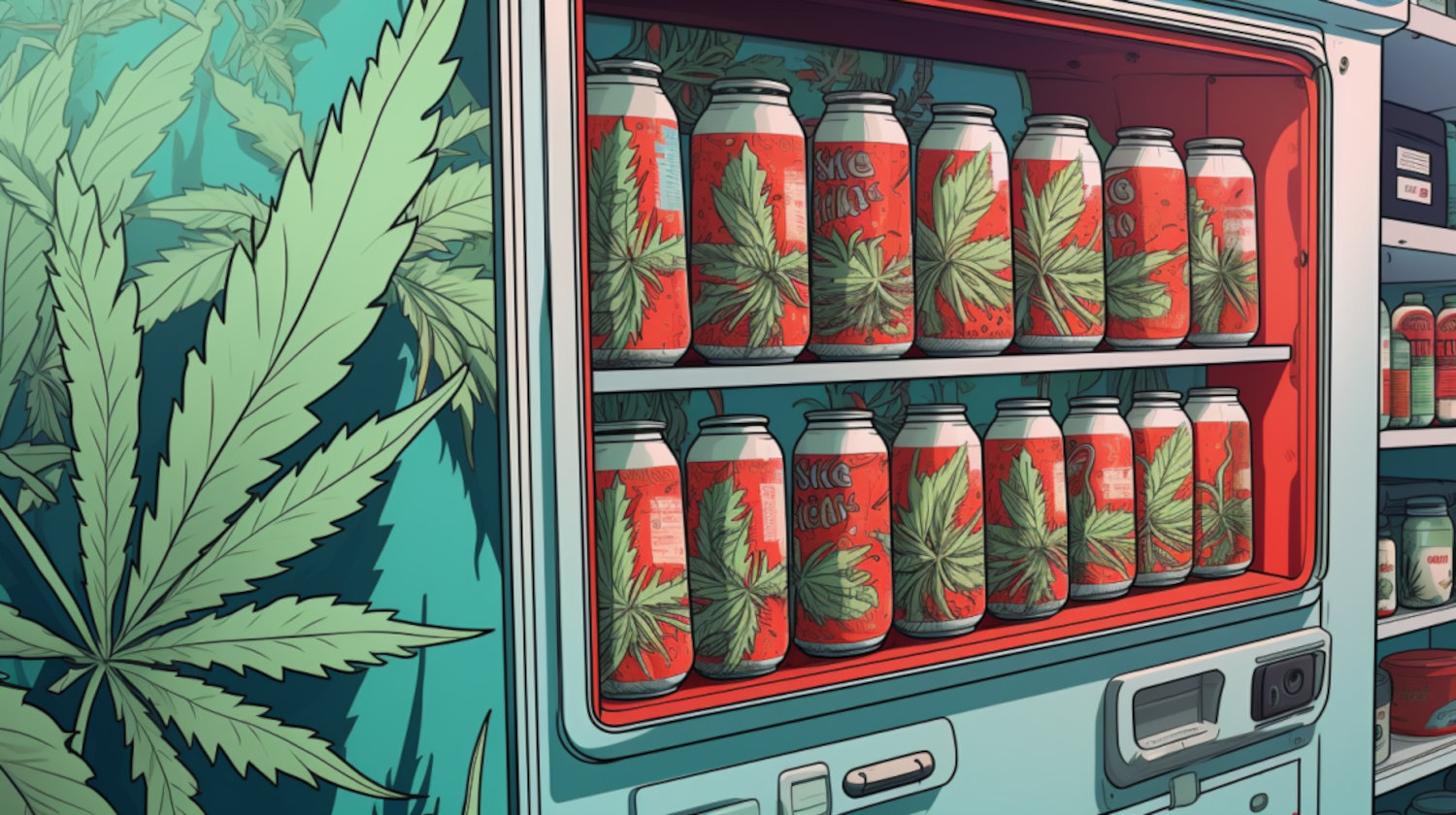Cannabis consumption often leads to dry mouth, an arid, sticky, sometimes funky feeling in the mouth. While cotton mouth from weed doesn’t occur every time, many users wonder why it happens and how they can avoid it.
What is Cotton Mouth From Weed?
Dry mouth, or xerostomia, is characterized by decreased saliva production and persistent mouth dryness. Depending on its root cause, dry mouth can be a temporary or chronic inconvenience.
In the cannabis community, dry mouth is often commonly referred to as cotton mouth. Cannabis, specifically THC, the plant’s most prevalent cannabinoid, has been identified as the compound causing the effect. THC binds to the body’s CB1 receptors, affecting their ability to regulate salvation as usual. THC has been recognized for disrupting saliva flow to the mouth, leading to dry mouth.1
A dry mouth, caused by cannabis or other factors, produces various symptoms ranging in levels of discomfort to the mouth. Symptoms may include short- and longer-term effects, such as:
- Sticky feeling in the mouth
- Chronic mouth dryness (Unable to improve the situation with most beverages)
- Difficulty chewing
- Difficulty swallowing
- Difficulty tasting
- Difficulty speaking
- Burning mouth sensation
- Mouth itch
- Throat dryness
- Cracked lips
- Dry, cracked lips
- Mouth sores
- Recurrent infections of the mouth or throat
- Bad breath
These symptoms, particularly the longer-term issues, highlight the need for proper oral hygiene, especially when consuming cannabis or whenever dry mouth occurs.
With a relatively long list of possible symptoms, cotton mouth causes four primary symptoms:
- Persistent Dryness: Cotton mouth is primarily constant dryness in the mouth, despite the use of beverages or saliva to reduce it.
- Difficulty Chewing and Swallowing: Without saliva, the body lacks a crucial element to break down food and ease swallowing.
- Altered Taste: Without saliva, taste perception can be skewed. A commonly reported adverse effect of dry mouth is the decreased ability to taste foods and beverages as intended.
- Oral Health Issues: Saliva is critical to oral health due to its natural protective functions. Chronic and prolonged dryness of the mouth can lead to a higher potential for dental decay, gum disease, and oral infections.
Why Does Weed Give You Cotton Mouth?

Research heavily suggests that THC can be a cause of dry mouth, contributing to the various symptoms reported.
Studies note that THC's effect on the CB1 receptors in the body is the critical reason for cotton mouth after smoking cannabis. When THC binds to CB1 receptors, salivation regulation is altered, ceasing or decreasing the production of saliva.
In addition, CB1 receptors are expressed on the axons of cholinergic neurons that supply the submandibular gland. THC reduces acetylene release, which decreases basal salivation.
THC consumers run the highest risks of dry mouth, no matter their method of consumption, be it smoking, vaping, edibles, or even THC-infused gum. While CBD does not interfere with saliva production like THC, it can influence the length of dry mouth users experience. Research has suggested that products containing greater quantities of THC and minimal amounts of CBD are more likely to produce cottonmouth effects.
Studies suggest that additional factors in cannabis consumption may play a role in dry mouth. They include:
- Consumption method
- Metabolism
- Other cannabinoids and terpenes in the cannabis plant profile
Is Cotton Mouth From THC Dangerous?
Dry mouth caused by THC consumption is generally more uncomfortable than it is dangerous. However, chronic or prolonged bouts of xerostomia could lead to oral health issues such as cavities, gum disease, and mouth infections.
People should seek medical advice if dry mouth persists for more than a few hours or becomes a regular issue. The importance of seeing a medical professional cannot be understated, as saliva is crucial in neutralizing bacteria-produced acids found in the mouth. Saliva helps wash away these elements and food particles, allowing the mouth to fight off disease-causing substances.
While it's been long believed by some that THC leads to dehydration, that's not technically true according to current lab analysis. Research notes that THC is the cause of saliva production declining, resulting in the sensation of a dry mouth, not dehydration. However, cannabis consumers should still seriously consider staying hydrated.
How to Prevent Cotton Mouth

Anyone looking to reduce their dry mouth symptoms, caused by cannabis or otherwise, may want to implement one or more of the following options:
- Drinking 8 to 12 cups (64–96 ounces or 2-3 liters) of water per day.
- Sipping water or a sugarless drink during meals, aiding in chewing and swallowing.
- Limit caffeine beverage intake, including but not limited to coffee, tea, and some sodas.
- Chew sugarless gum or suck on sugarless hard candy to stimulate saliva flow. Various flavors, including sour, citrus, cinnamon, or mint-flavored candies, may be most effective.
- Look for sugarless options with xylitol, which may help prevent cavities.
- Avoid spicy or salty foods, which may amplify some dry mouth symptoms via burning sensations.
- Avoid tobacco or alcohol, both known causes of dry mouth.
- Use a humidifier at night to increase moisture in the air.
Treating Cotton Mouth
Treating dry mouth requires identifying the cause. After determining the issue, a healthcare provider can recommend appropriate treatment options. For example, a doctor may need to recommend a change in medication or dosage. In some situations, a saliva substitute or artificial option may be required.
In less severe cases, many of the tips, like staying adequately hydrated or chewing sugar-free gum, can help lessen or eliminate dry mouth.
Another helpful cannabis-based option is to sip on CBD-infused water, which checks two boxes: providing hydration and the reported beneficial effects of CBD. Flintts Mints, a saliva-producing mint powered by the spilanthes flower found in the Amazon, may also provide possible relief for dry mouth.
How Long Does THC Stay in Saliva Glands?

THC plays a crucial role in affecting saliva production. The cannabinoid binds to the body's CB1 receptors and the nervous system, causing dry mouth (cotton mouth) effects. Once THC is activated, the receptors decrease the release of neurotransmitters that stimulate saliva production, leading to reduced or no saliva in the mouth.
But how long does THC affect saliva production?
With a cannabis-based dry mouth, the period in which saliva production is affected is determined by several factors, including:
- THC dose consumed
- Frequency of use
- Individual metabolism
Additional research is required to understand how we can more precisely identify the duration of the effects. However, the general belief at this time is that the effects should last as long as THC remains active in the system, typically several hours.
One study showed that THC concentrations were detected in saliva for up to six hours after consumption had occurred. Researchers noted that THC was detectable for a more extended period in frequent consumers. These findings suggest that THC can remain detectable in saliva well after the initial effects have worn off.2,3
References
- Andreis K, Billingsley J, Naimi Shirazi K, et al. Cannabinoid CB1 receptors regulate salivation. Sci Rep. 2022;12(1):14182. Published 2022 Aug 19. doi:10.1038/s41598-022-17987-2 ↩︎
- Hoffman MA, Hubbard JA, Sobolesky PM, et al. Blood and Oral Fluid Cannabinoid Profiles of Frequent and Occasional Cannabis Smokers. Journal of Analytical Toxicology. 2021;45(8):851-862. doi:https://doi.org/10.1093/jat/bkab078 ↩︎
- Hubbard JA, Hoffman MA, Ellis SE, et al. Biomarkers of Recent Cannabis Use in Blood, Oral Fluid and Breath. Journal of Analytical Toxicology. 2021;45(8):820-828. doi:https://doi.org/10.1093/jat/bkab080 ↩︎
The information in this article and any included images or charts are for educational purposes only. This information is neither a substitute for, nor does it replace, professional legal advice or medical advice, diagnosis, or treatment. If you have any concerns or questions about laws, regulations, or your health, you should always consult with an attorney, physician or other licensed professional.




